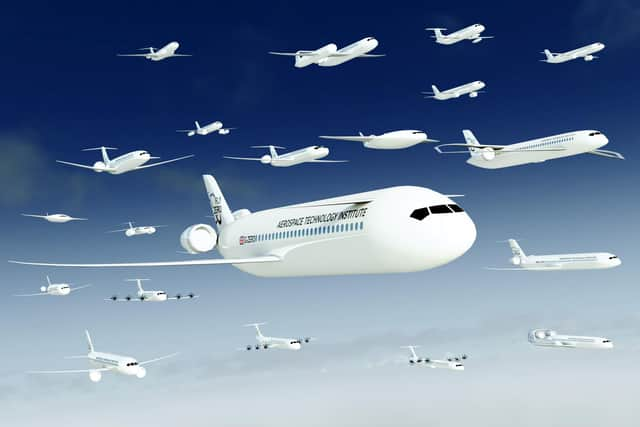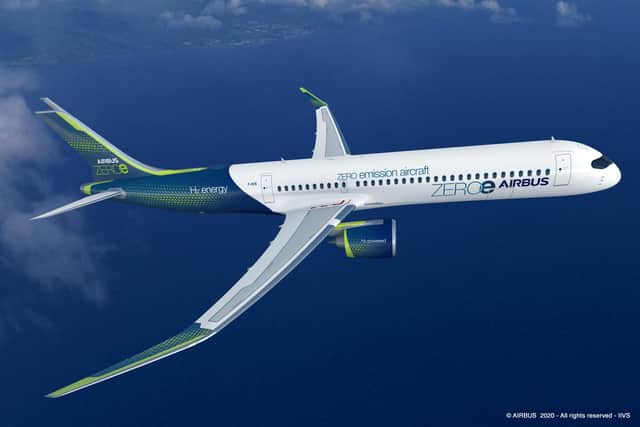COP26: Easyjet wants to be the first to fly passengers in hydrogen-powered Airbus aircraft from 2035
Easyjet director of flight operations David Morgan told The Scotsman he wanted the airline’s passengers to be flying on such aircraft “the moment they are available”.
He said: “We hope [in] 2035 the first Easyjet passengers are flying on a zero-emissions aircraft.”
Advertisement
Hide AdAdvertisement
Hide AdMr Morgan said hydrogen was expected to play a crucial role in the airline reaching net zero emissions by 2050 – a target announced yesterday.


But he said unless there was a “step change” in battery technology, it would remain too heavy for aircraft on its routes.
On the prospects for hydrogen, Mr Morgan said: “The clearest indication we have got from [manufacturer] Airbus is they will produce a commercially-viable aircraft in 2035.
"That’s great we have a timeline to work to.
“Whether they achieve it or not is another thing, but the indications are good - progress has been very good.”


Underlining Easyjet’s ambitions to pioneer hydrogen-powered air travel, Mr Morgan said: “If you had asked me a few years ago, did we want to be the launch customer on a brand new airplane, I’d have said no way.
"But in this circumstance, somebody has to take the lead.
"It’s important for the aerospace industry to have a strong partner to go with, that they have the confidence that we will buy a lot of aircraft – and we don’t have time to waste.
"We can’t sit around for another ten years and see how it’s going – time is against us.


"With a 2050 trajectory, [during] that last 15 years from 2035 we very much hope to have a massive impact on our carbon footprint through the use of zero-emissions technology.
Advertisement
Hide AdAdvertisement
Hide Ad"We would not normally be involved so early on the design of this aircraft, [but] here we are, 15 years before it’s due to be released into service and we are already having detailed discussions.
"We hope to involved right through the programme for testing.
"This aircraft will fly long before 2035 – it will be test flying this decade."
Mr Morgan said other manufacturers might launch smaller hydrogen-powered aircraft this decade but with only up to about 100 seats – around half the size of Easyjet’s aircraft.
He said electric aircraft were unlikely to have sufficient range because of the weight of batteries.
He told an event organised by consultants Wood, organised to coincide with COP26, that while an EasyJet aircraft could fly from Luton to Dubai on a full tank of kerosene [jet fuel], it would only get as far as Dover with a similar weight of batteries, but with the same weight of liquid hydrogen it could reach Sydney.
Mr Morgan said: "Energy density is key to tackling the problem for aviation.
"For smaller vehicles, especially ground vehicles, [batteries] are ideal, even for small aircraft.
Advertisement
Hide AdAdvertisement
Hide Ad"But we are very, very unlikely to see a large commercial-sized narrow-bodied aircraft being powered by battery, so hydrogen is key.”
In the interim, he said airlines would be required by the EU to progressively increase the amount of “sustainable aviation fuel” they used, starting with 2 per cent from 2025.
A message from the Editor:
Thank you for reading this article. We're more reliant on your support than ever as the shift in consumer habits brought about by coronavirus impacts our advertisers.
If you haven't already, please consider supporting our trusted, fact-checked journalism by taking out a digital subscription.
Comments
Want to join the conversation? Please or to comment on this article.
